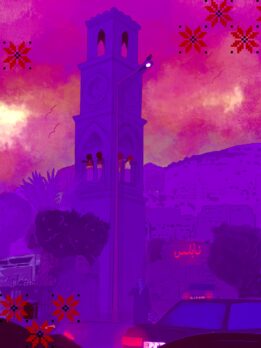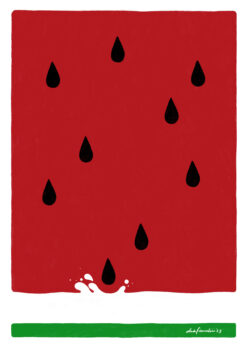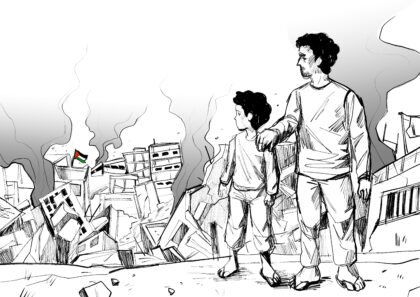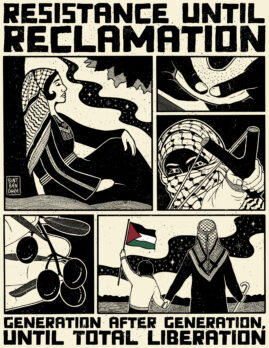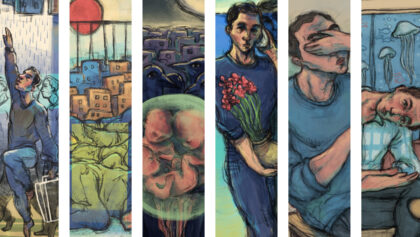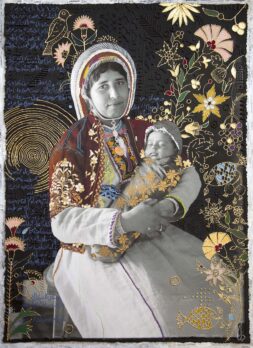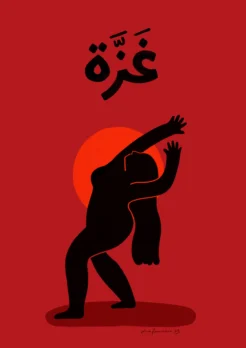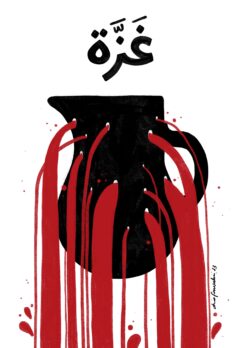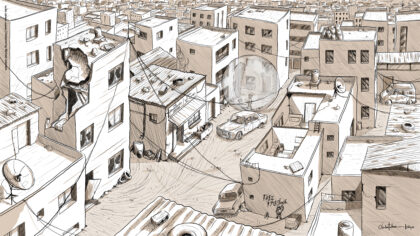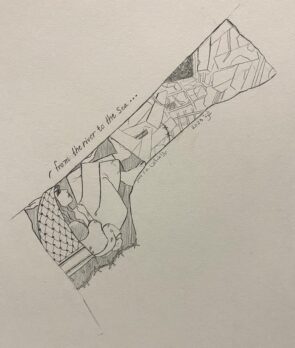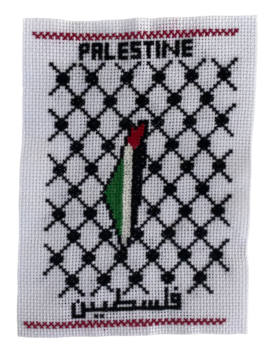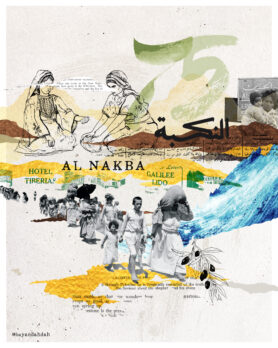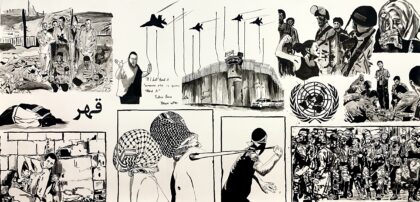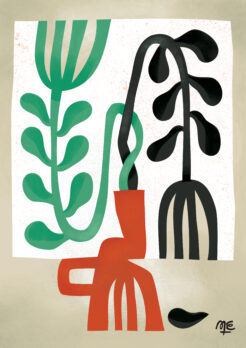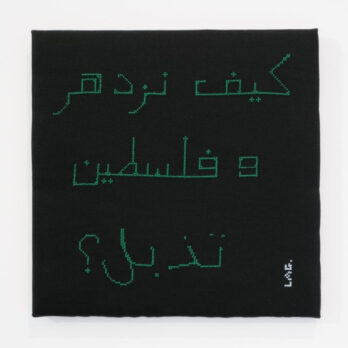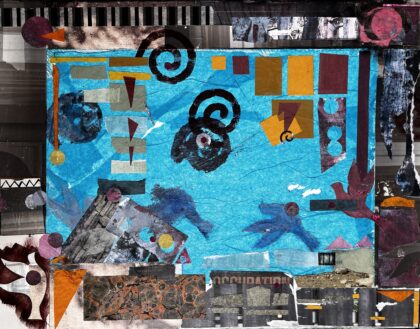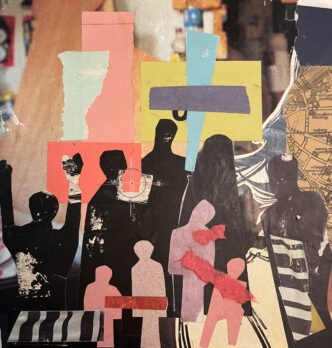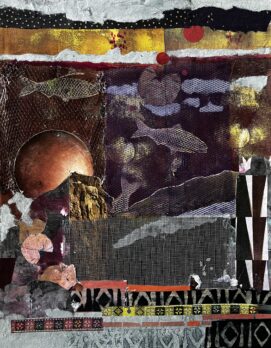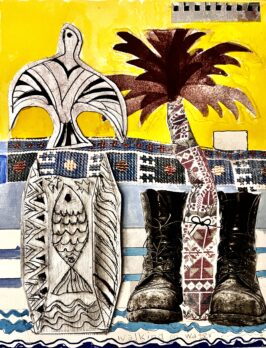 Artwork by Dalia Tuffaha
Artwork by Dalia Tuffaha
I first met the Gaza Strip on a television screen back in 2004, at eleven years old.
Living in Ramallah, the rest of Palestine felt very far away. I knew there were places I could not go because of the Israeli occupation, but it was only as an adult that I realized the distance between Ramallah and Gaza is the distance between New Orleans and Baton Rouge, which is to say, a one-hour drive.
Watching Gaza on the television screen, my great grandmother would recount how she had gone to Gaza in the 1980s for a wedding. “We rode a bus and went,” she’d say every time. The trip was as uncomplicated as a single bus ride.
~
Over the years, in 2009, 2014, 2018, 2019, and 2021, I met the Gaza Strip and her people through images, from a distance. One of my favorite professors at Birzeit University; a friend and her family growing up in Ramallah; a friend I met virtually during the pandemic; a man I know outside of Palestine – we have never met in Gaza, but she lives in these encounters.
I have also met the hospitals before, notably Al-Shifa Hospital, from my living room. In earlier viewings, when they were reported as safe havens. Slivers of hope surrounded by instant death.
~
Today I am again meeting Gaza on a screen.
In early October, a friend said she feels like the people we’re seeing on TV and on our phones look familiar. Like a recurring nightmare, I obsess about this observation all day. Do they look familiar because they are Palestinian like her and I, and we share similar features? Is it a shared grief on our faces, in our eyes? Or have we met before?
Have we met in 2009? 2014? 2021?
I want to say to those who are watching us, not sure what to think, say or do: We’re not only Muslim. Here’s proof that this is not about religion. This is about Palestine. This is about wanting Palestinians to fade away or die away or surrender and blend in with the rest of the Arab world and forget they exist as Palestinians. This is about wanting that no matter the mechanism and no matter the cost to reach that goal. What more proof do you want?
The question is rhetorical, but it seems the more we ask it, the more Palestinians in Gaza get tested. The death toll was 300. In five minutes, my friend texts me, “500.” In ten minutes, she texts me, “They’re saying 800.”
~
My previous meetings with Gaza have been fleeting. They ended when the brutal attacks on Gaza and her people stopped, freeing her up to rebuild, away from cameras.
I wish this meeting now, too, were fleeting. But it keeps going.
When the news came in that a Christian Baptist hospital had been bombed in Gaza, I wanted to scream. I wanted to scream, Have you met Gaza? Do you see what just happened? A hospital was bombed! A hospital! They bombed a hospital! They’re trying to get rid of us! Wipe out more families! Some of them were orphans! They killed the orphans!
I opened my office door in a university in America. It was quiet. Silent.
We, those of us not from Gaza, never meet Gaza as she’s rebuilding herself. We, those of us not from Gaza, have yet to meet Gaza not under siege.
The other day, an American woman told me, “I didn’t know about your homeland. Thank you for telling me about your people. I am seeing you in my nightmares.”
Good, I think. Meet us in your nightmares.
